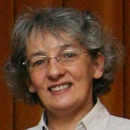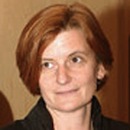Advisory Board and Editors Genetics

Nikolai Slavov
I received my undergraduate education from the Massachusetts Institute of Technology (MIT) in 2004. Then, I pursued doctoral research in the Botstein laboratory at Princeton University, aiming to understand how cells coordinate their growth, gene expression, and metabolism. We discovered a simple mechanism that can account for the growth-rate dependent transcriptional responses across a wide range of growth conditions and growth rates. After defending my dissertation in 2010, I began a postdoctoral project in the van Oudenaarden laboratory at MIT, aiming to understand the Warburg effect, a hallmark of cancer cells characterized by the fermentation of glucose in the presence of enough oxygen to support respiration. This work demonstrated that aerobic glycolysis can reduce the energy demands associated with respiratory metabolism and stress survival and that, contrary to expectations and decades-long assumptions, exponential growth at a constant rate can represent not a single metabolic/physiological state but a continuum of changing states characterized by different metabolic fluxes. Following a lead from these experiments, we obtained direct evidence for differential stoichiometry among core ribosomal proteins in unperturbed wild-type cells. Our findings support the existence of ribosomes with distinct protein composition and physiological function that represent an explored layer of regulating gene expression.

Paula Soares
Professor of Biopathology at Medical Faculty of the University of Porto and coordinator of Cancer Signaling and Metabolism research group at IPATIMUP/I3S.

Kumaravel Somasundaram
Kumar Somasundaram is a Professor at Department of Microbiology Cell Biology, Indian Institute of Science, Bangalore, India. He obtained his Veterinary Medicine degree (1985) from Madras Veterinary College, Masters in Biotechnology (1987) and Ph.D. in bacterial genetics (1993) from Madurai Kamaraj University, Madurai, India. Subsequently, he did his post-doctoral training at Northwestern University and University of Pennsylvania in Cancer Biology before moving to Indian Institute of Science (1999) as a faculty. The major focus of his laboratory is genetics of glioma, the most common primary adult cancer

Jian Song
Since 2016 Dr. Jian Song has been Priv.-Doz of Experimental Immunology within the Institute of Physiological Chemistry and Pathobiochemsitry at the University of Münster, Germany. He received his PhD of Molecular Medicine from Cologne University, Germany.
Dr. Song's research interests include investigating the role of basement membranes and matrix metalloproteinases in leukocyte extravasation into the brain and into the tumour microenvironment using intravital imaging and scRNA technology

Robert G Steen
Director of the Biopolymers NextGen Sequencing Facility, Department of Genetics, Harvard Medical School.

Monika Stoll
Professor of Genetic Epidemiology at the Medical Faculty and Director of the Leibniz-Institute for Arteriosclerosis Research at the University of Muenster, Germany. Former Associate Editor of Physiological Genomics, Academic Editor of PLoS ONE. Main research interests: Genetics of complex disease traits, in particular cardiovascular and inflammatory diseases; comparative genomics, evolutionary medicine.

Anne Marie Strohecker
Assistant Professor Departments of Cancer Biology and Genetics and Surgery, The Ohio State University
We are interested in mechanisms of autophagy regulation, with a focus on discovering how to modulate the pathway for optimal therapeutic benefit. Current projects are focused on the identification of novel autophagy regulators and their functional relevance for lung tumorigenesis

Vasanta Subramanian
Vasanta Subramanian is currently an Associate Professor in Vertebrate Developmental Genetics and Stem cell Biology. Her research focus is in three main areas- (1) Polycomb group genes, signalling and embryonic development (2) stem cells and reprogramming and (3) stem cell and transgenic mouse models for neurodegenerative diseases.She is a Fellow of theRoyal Society of Biology.

Sankar Subramanian
Senior Lecturer at the University of the Sunshine Coast, Moreton Bay, Brisbane, Australia; USC Senior Research Fellow; Smithsonian Fellow; Adjunct Research Fellow (Griffith University)
Dr Sankar Subramanian is a Senior Lecturer in Genetics. Sankar joined USC as a Senior Research Fellow in March 2017. Prior to this he worked at the Australian Research Centre for Human Evolution, Griffith University. His research primarily centers around the question of, how does genetic drift influence mutations. Sankar worked on a number of research projects to investigate the interaction between drift and mutations, which include the evolution of codon usage bias in animal genomes, temporal patterns of deleterious mutations in humans and penguins, difference in the allele frequencies of polymorphisms in global human populations. Sankar has developed methods to identify and quantify deleterious mutations in human populations. Dr Subramanian is also interested in estimating rates of mutations and divergence times between species and populations. His research also focuses on studying ancient genomes to understand the past demographic history of vertebrates including ancient penguins, tuatara (a New Zealand reptile), moa (an extinct bird) and ancient humans. Furthermore, he is investigating the population history, mutational load and admixture patterns of modern and ancient Aboriginal Australians. At USC, he has started working on the conservation genomics of Australian Dingoes.

Armando Sunny
Dr. Armando Sunny is a Researcher and Professor within the Applied Biological Sciences Research Center, Science Faculty at the Autonomous University of the State of Mexico (UAEM).
He is interested to know how certain features of the landscape affect the genetic diversity and structure of species in anthropized environments, for this he performs analysis of landscape genetics, population genetics, niche modeling, SIG, landscape connectivity and global change analysis, especially in amphibians and reptiles.

Catherine M Suter
Cath Suter is currently an ARC Fellow and head of the Epigenetics Laboratory at the Victor Chang Cardiac Research Institute in Sydney. Suter was the first to describe germline epimutations in humans, and her major interest continues to be mammalian germline epigenetic phenomena and their inheritance. Her group focuses on the epigenetic contribution to phenotypic variation and disease risk, with a particular interest in the role of environment in modulating epigenetic inheritance.

Julie D. Thompson
Until 2013, Senior research scientist at the Institute of Genetics and Molecular and Cellular Biology and University of Strasbourg, France. Currently, senior research scientist in Integrative Bioinformatics and Genomics at the ICube laboratory and University of Strasbourg, France.

